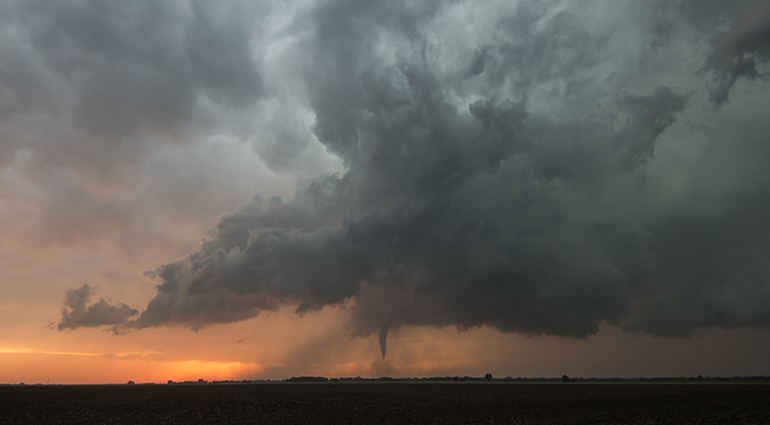Every Moment Matters
June 20, 2018

Read: Philippians 1:12–24 | Bible in a Year: Esther 1–2; Acts 5:1–21
For to me, to live is Christ and to die is gain. Philippians 1:21
When I met Ada, she had outlived her entire group of friends and family and was living in a nursing home. “It’s the hardest part of getting old,” she told me, “watching everyone else move on and leave you behind.” One day I asked Ada what kept her interest and how she spent her time. She answered me with a Scripture passage from the apostle Paul (Philippians 1:21): “For to me, to live is Christ and to die is gain.” Then she said, “While I’m still around, I have work to do. On my good days, I get to talk to the people here about Jesus; on the hard days, I can still pray.”
Significantly, Paul wrote Philippians while in prison. And he acknowledged a reality many Christians understand as they face their mortality: Even though heaven seems so inviting, the time we have left on Earth matters to God.
Like Paul, Ada recognized that every breath she took was an opportunity to serve and glorify God. So Ada spent her days loving others and introducing them to her Savior.
Even in our darkest moments, Christians can hold on to the promise of permanent joy in the company of God. And while we live, we enjoy relationship with Him. He fills all our moments with significance.
Lord, grant me the strength to serve You with every breath I take, so that every moment of my remaining days matters to Your Kingdom.
Study more at christianuniversity.org/courses/spiritual-life-basics.
When God comes to call us home, may He find us serving Him.
By Randy Kilgore | See Other Authors
INSIGHT
How can you use the days God has given you to love and serve others?
June 20, 2018

Read: Philippians 1:12–24 | Bible in a Year: Esther 1–2; Acts 5:1–21
For to me, to live is Christ and to die is gain. Philippians 1:21
When I met Ada, she had outlived her entire group of friends and family and was living in a nursing home. “It’s the hardest part of getting old,” she told me, “watching everyone else move on and leave you behind.” One day I asked Ada what kept her interest and how she spent her time. She answered me with a Scripture passage from the apostle Paul (Philippians 1:21): “For to me, to live is Christ and to die is gain.” Then she said, “While I’m still around, I have work to do. On my good days, I get to talk to the people here about Jesus; on the hard days, I can still pray.”
Significantly, Paul wrote Philippians while in prison. And he acknowledged a reality many Christians understand as they face their mortality: Even though heaven seems so inviting, the time we have left on Earth matters to God.
Like Paul, Ada recognized that every breath she took was an opportunity to serve and glorify God. So Ada spent her days loving others and introducing them to her Savior.
Even in our darkest moments, Christians can hold on to the promise of permanent joy in the company of God. And while we live, we enjoy relationship with Him. He fills all our moments with significance.
Lord, grant me the strength to serve You with every breath I take, so that every moment of my remaining days matters to Your Kingdom.
Study more at christianuniversity.org/courses/spiritual-life-basics.
When God comes to call us home, may He find us serving Him.
By Randy Kilgore | See Other Authors
INSIGHT
How can you use the days God has given you to love and serve others?











